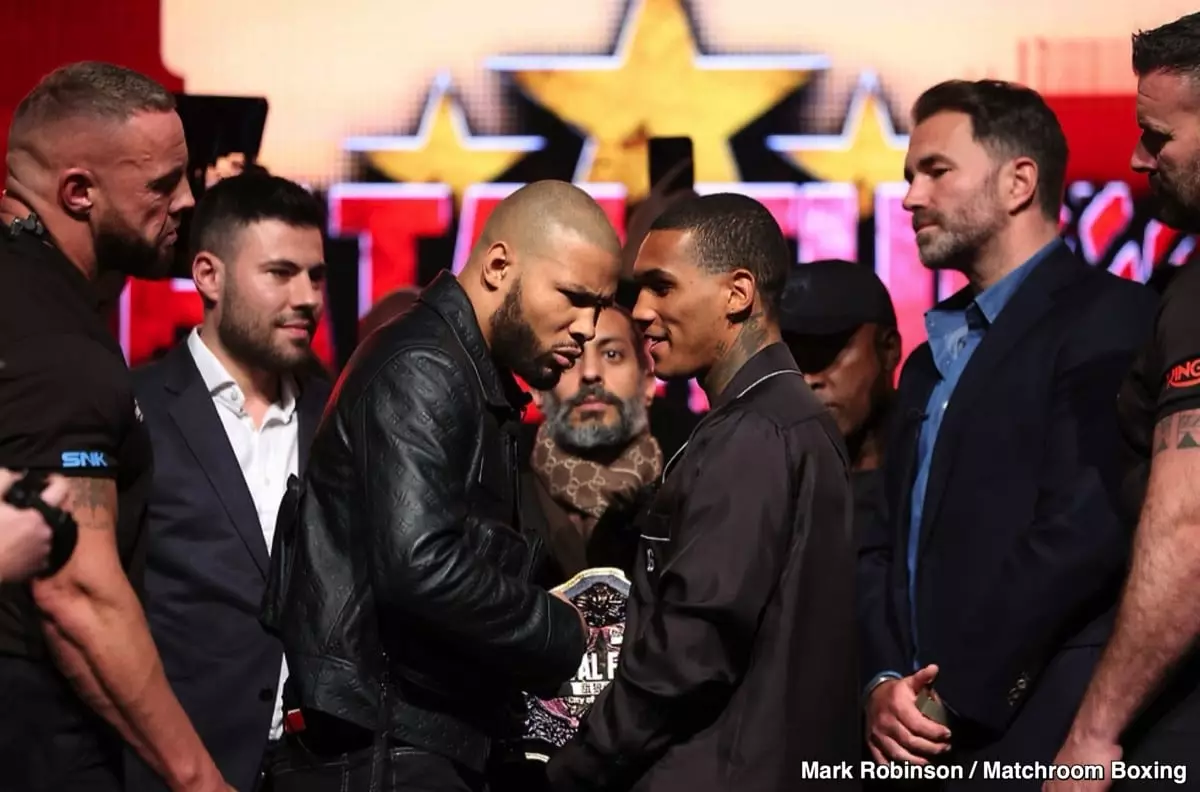The anticipation surrounding the DAZN pay-per-view fight between Conor Benn and Chris Eubank Jr. hints at more than just a typical boxing match; it encapsulates a tumultuous rivalry simmering with genuine animosity and complex emotions. While both pugilists tout their unblemished records—Benn with 23 wins and Eubank boasting a respectable 34 victories—what elevates this encounter from mere sport to an arena of personal vendetta is the palpable hatred expressed by Benn. His comments regarding Eubank, challenging not just the man’s fighting prowess but his very character, veer into perilous territory, making viewers question the authenticity of this feud.
Eubank, with a track record that includes 25 knockouts, may not echo Benn’s fervent use of the word “hate,” but the stark contrast in their personalities is more than apparent. This clash is not merely about athletic supremacy; it delves into the very essence of what these fighters represent. With Benn expressing disdain for Eubank’s character and intentions, the fight transcends athleticism—it’s a contest of ideologies and egos.
The Mental Game
As fight night approaches, it becomes essential to discern how psychological warfare plays into their preparations. Benn has candidly admitted that the thought of losing to Eubank propels him to train harder, waking up at dawn to prepare for the collision ahead. His determination is palpable, driven by an internal monologue that champions pride over humility. This competitive mindset positions him to potentially be his own worst enemy, as his sense of impending doom may add unwarranted pressure to perform.
Meanwhile, Eubank’s perspective is just as intense but is underlined by a more traditional, dare I say, stoic approach to combat. While Benn seeks to motivate himself through hate, Eubank leverages experience and strategy. His acknowledgment that a loss would be catastrophic for his own legacy underscores the stakes involved; it’s not just a fight—it’s about reputation, respect, and redemption.
Unspoken Grievances
Benn’s cryptic statements about “retiring” Eubank for reasons that remain unspoken only convolute the rivalry further. Rivalries thrive near the edges of intrigue, and the ambiguity surrounding Benn’s motives heightens viewer engagement and speculation. Could there be deeper familial or professional ties that shape this animosity? Boxing thrives on narrative, and a backstory crafted from animosity can lure in casual fans while keeping hardcore enthusiasts on the edge of their seats.
What Benn describes as “personal reasons” could lead to intriguing discussions that extend beyond the ring itself. If victims of a rematch or prolonged rivalry end up divulging their reasons for enmity, it may elevate their narratives into the annals of boxing history. However, speculation—or worse, assumptions—does little to envoke nuance; it merely feeds the flame of rivalries.
Consequences of Victory and Defeat
The implications of this fight stretch out like a shadow over both fighters’ careers. For Benn, victory would not only bolster his record but could serve as a springboard to vie for a world title at 147 pounds against formidable opponents like Mario Barrios. Conversely, a loss for Eubank could result in his own re-evaluation and potential calls for retirement. This uncertainty looms large and taps into the age-old narrative of triumph and catastrophe, adding yet another layer to their already complicated rivalry.
If Benn manages to secure a win, his declared refusal to shake Eubank’s hand raises questions about sportsmanship and human decency. On the other hand, Eubank, should he emerge victorious, may seek bigger fish to fry, with potential calls for a clash against Canelo Alvarez looming large on the horizon.
Ultimately, this impending bout is more than a mere fight; it represents an amalgamation of personal offensive and defensive strategies that echo well beyond the confines of the ring. In a sport entrenched in ethos of combat and camaraderie, every punch thrown signifies a deeper story waiting to unfold.

